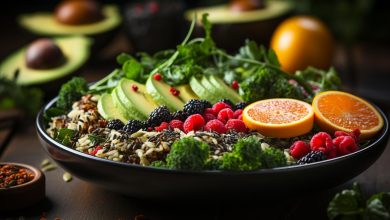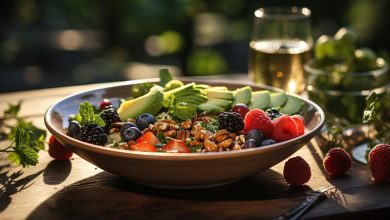Nutritional Guidelines for Pre-Race Meals
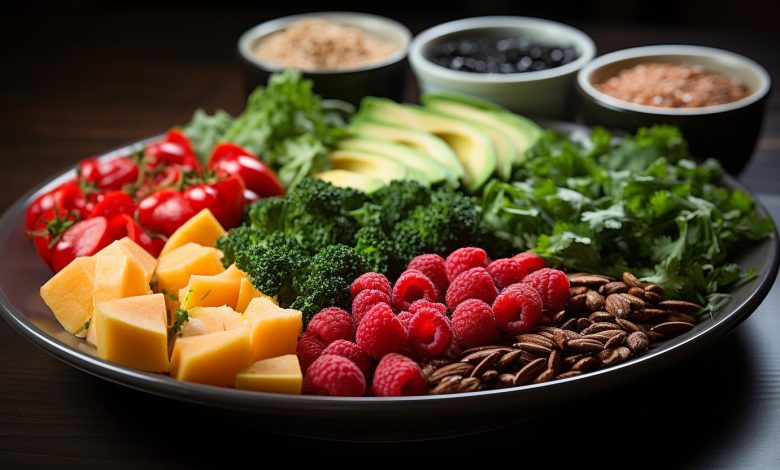
Are you looking to optimize your performance before a race? Wondering what to eat and when? Look no further!
This article will provide you with essential nutritional guidelines for pre-race meals. By following these evidence-based recommendations, you can ensure that your body is fueled up and ready to go on race day.
From macronutrient ratios to hydration strategies, we’ve got you covered.
So, let’s dive in and discover the secrets to reaching your peak performance!
The Importance of Pre-Race Nutrition
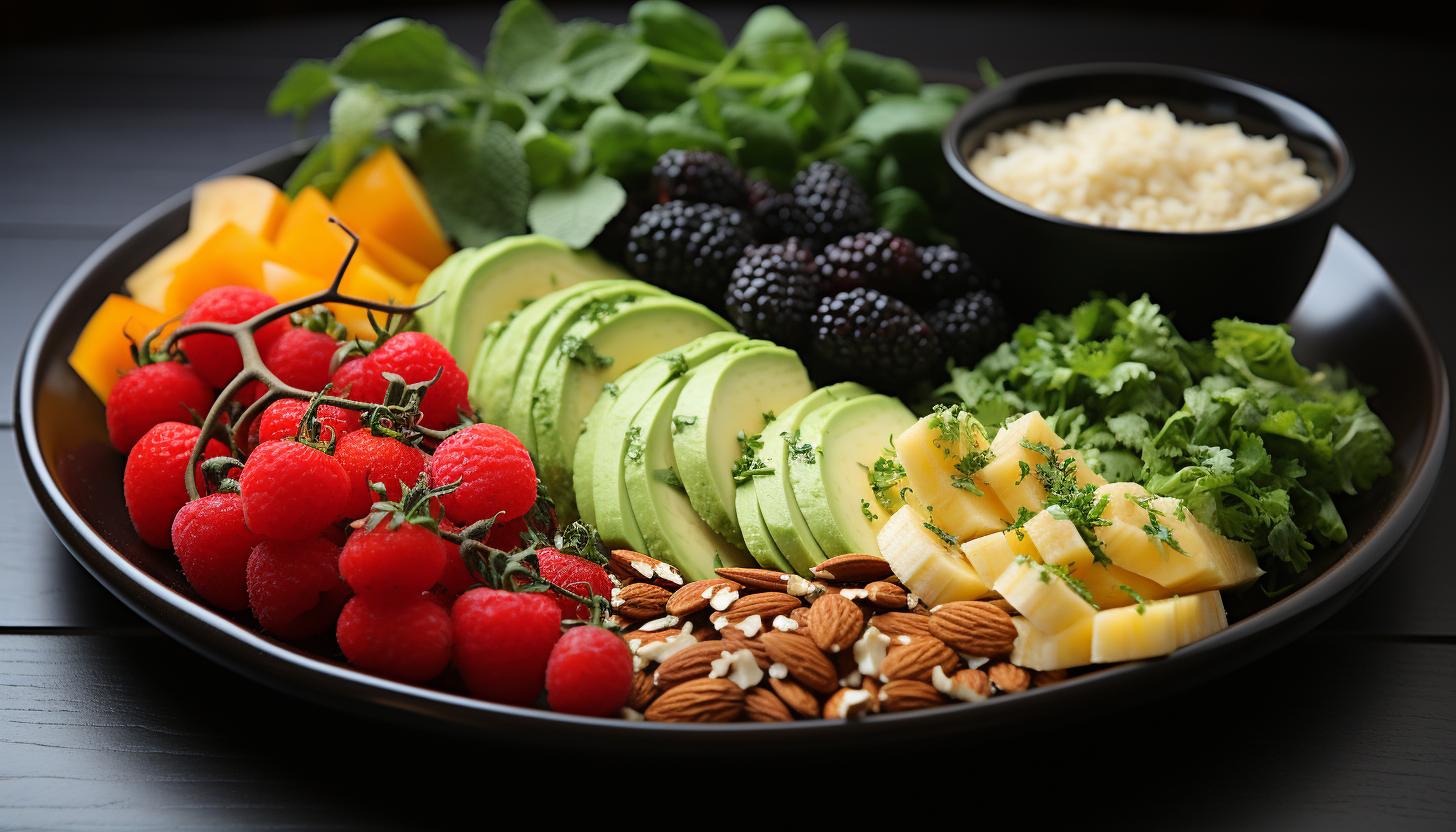
The importance of pre-race nutrition cannot be overstated. When it comes to preparing for a race, what you eat before can greatly impact your performance. Proper pre-race meal planning is essential to ensure that your body has the energy and nutrients it needs to perform at its best.
One key aspect of pre-race nutrition is carb loading. Consuming a high-carbohydrate meal before a race has been shown to provide numerous benefits. Carbohydrates are the body’s primary source of fuel, and by increasing your carbohydrate intake before a race, you can help maximize glycogen stores in your muscles. This means more energy available for use during exercise.
Carb loading also helps prevent fatigue and delays muscle fatigue during prolonged endurance events. It allows you to sustain higher intensity efforts for longer periods, which can be crucial in races where speed and endurance are important.
In addition, consuming carbohydrates before a race helps maintain stable blood sugar levels, preventing sudden drops or spikes that can negatively affect performance.
To optimize your pre-race nutrition, focus on consuming complex carbohydrates such as whole grains, fruits, and vegetables. Avoid foods high in fat and fiber as they may cause digestive issues during the race.
Macronutrient Ratios for Optimal Performance
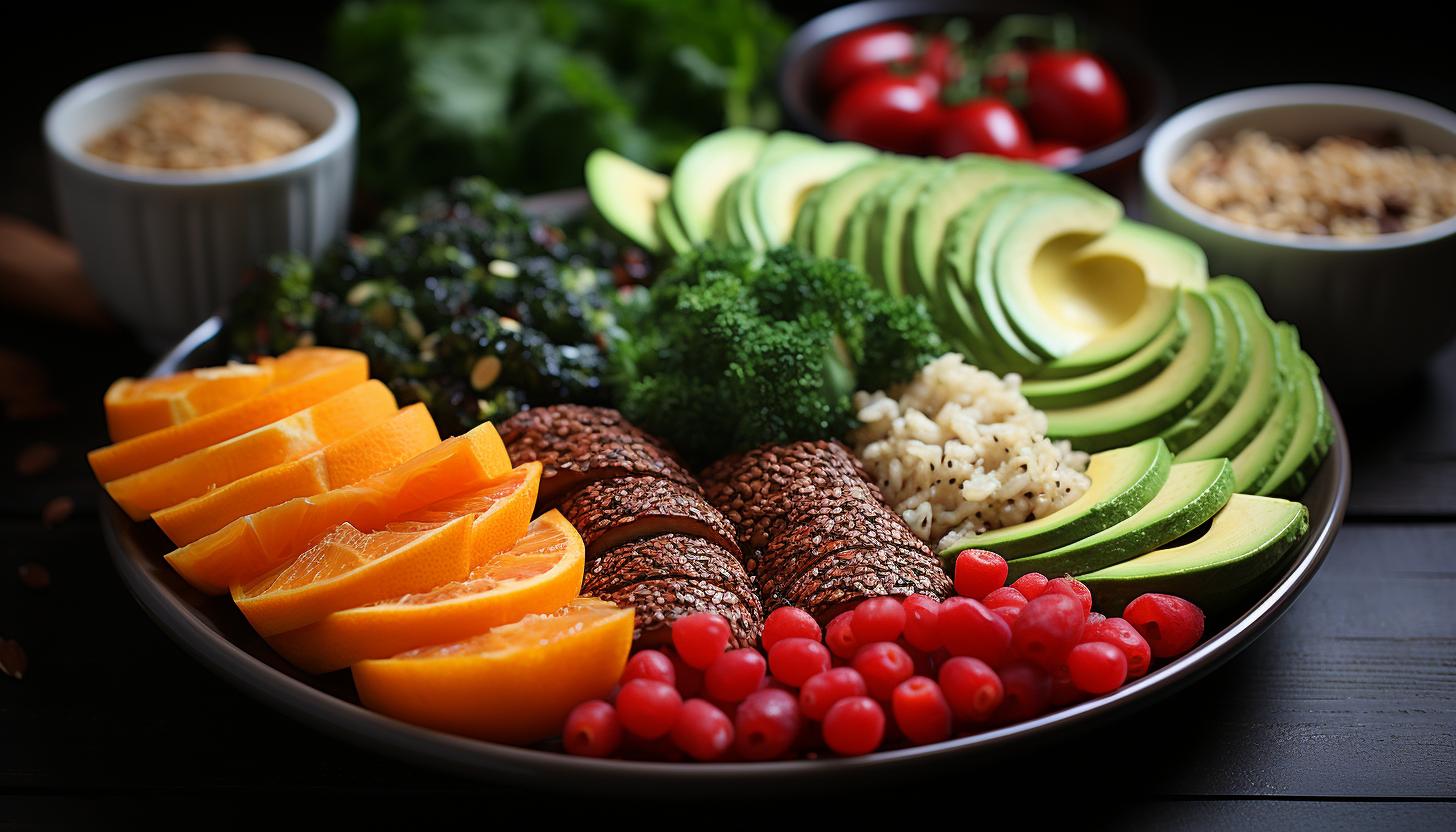
To maximize performance, it’s important to consider the macronutrient ratios in your pre-race meal. The timing and composition of your meal can have a significant impact on your energy levels and endurance during a race. Here are some key points to keep in mind:
1. Effects of macronutrient timing: Consuming a balanced combination of carbohydrates, protein, and fats before a race is crucial for optimal performance. Carbohydrates provide the primary source of fuel for your muscles, while protein helps with muscle repair and recovery. Including some healthy fats can help slow down digestion and provide sustained energy.
2. The role of glycogen stores: Glycogen is the stored form of glucose in our muscles and liver. During exercise, glycogen is broken down to provide energy. By consuming carbohydrates in your pre-race meal, you can replenish these glycogen stores and ensure that you have enough fuel to sustain you throughout the race.
3. Find what works best for you: Every athlete is different, so it’s essential to experiment with different macronutrient ratios during training to find what works best for your body. Some athletes may prefer a higher carbohydrate intake, while others may benefit from more protein or fat before a race.
By considering the macronutrient ratios in your pre-race meal and understanding their effects on macronutrient timing and glycogen stores, you can optimize your performance on race day.
Remember that consistency is key – stick to what works best for you based on personal experience and listen to your body’s needs.
Hydration Strategies for Race Day

Make sure you stay hydrated on race day by drinking water consistently throughout the event. Maintaining proper hydration is crucial for optimal performance and overall well-being during a race. When it comes to hydration, electrolyte balance plays a significant role. Electrolytes are minerals that help regulate fluid levels in the body, and they are lost through sweat during physical activity.
Hydration strategies can vary depending on the distance of the race. For shorter races, such as 5Ks or 10Ks, hydrating adequately in the days leading up to the event is generally sufficient. However, for longer races like half marathons or marathons, it’s important to have a well-thought-out hydration plan.
During longer races, consider consuming sports drinks or electrolyte-rich beverages to replenish both fluids and electrolytes lost through sweat. Aim to drink approximately 4-8 ounces of fluid every 15-20 minutes during your run to maintain proper hydration levels.
It’s also essential to listen to your body’s thirst cues and adjust your fluid intake accordingly. Factors such as weather conditions and individual sweat rates will influence how much fluid you need during a race.
Now that we’ve covered hydration strategies for race day let’s move on to discussing the timing and quantity of pre-race meals, which play an equally important role in fueling your performance.
Timing and Quantity of Pre-Race Meals

Make sure you time your pre-race meals appropriately and eat the right quantity to fuel your performance on race day. Proper meal composition is crucial for optimal pre-race fueling. Here are some guidelines to help you plan your meals effectively:
Timing: Aim to consume your pre-race meal 2-3 hours before the start of the race. This allows enough time for digestion, preventing any discomfort during exercise. Consuming a smaller snack 30-60 minutes before the race can also provide an additional energy boost.
Composition: Your pre-race meal should consist of easily digestible carbohydrates, moderate in protein, and low in fat and fiber. Carbohydrates will provide the necessary energy for endurance activities, while protein aids in muscle repair and recovery.
Quantity: Be mindful of portion sizes to avoid feeling overly full or hungry during the race. A general guideline is to consume around 1 gram of carbohydrate per kilogram of body weight for every hour leading up to the race.
Remember, everyone’s nutritional needs may vary slightly, so it’s important to experiment with different foods and timing strategies during training sessions to find what works best for you.
Pre-Race Snack Ideas for Sustained Energy
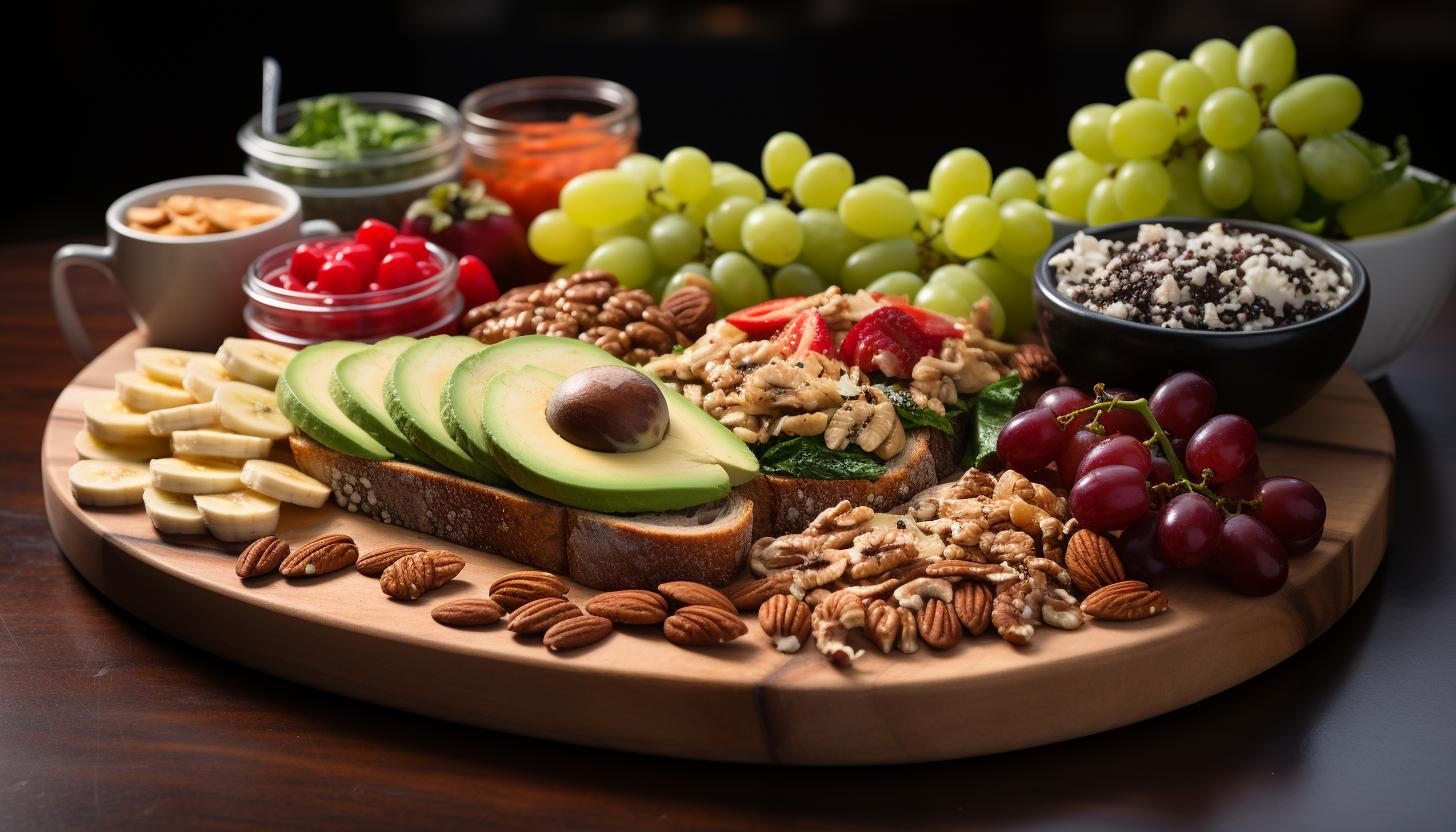
If you’re looking for sustained energy before a race, consider incorporating pre-race snack ideas that are high in easily digestible carbohydrates. These snacks can provide the balanced fuel your body needs to perform at its best. Opting for energy-packed snacks will help replenish glycogen stores and keep your blood sugar levels steady during the race.
One great option is a banana with a tablespoon of nut butter. Bananas are rich in carbohydrates and potassium, which can help prevent muscle cramps during exercise. The addition of nut butter adds some protein and healthy fats, providing longer-lasting energy.
Another idea is whole grain toast with honey or jam. Whole grains are an excellent source of complex carbohydrates that release energy slowly, keeping you fueled throughout the race. Adding a small amount of honey or jam provides a quick boost of glucose for immediate energy.
You could also try a homemade energy bar made with oats, dried fruits, nuts, and seeds. These bars offer a mix of carbohydrates, protein, and healthy fats that can sustain your energy levels during endurance events.
Remember to experiment with different snack options during your training to find what works best for you. And always listen to your body’s signals to ensure you’re properly fueled for race day!
Conclusion
In conclusion, following proper nutritional guidelines for pre-race meals is crucial for optimal performance. By fueling your body with the right macronutrient ratios and staying hydrated, you can ensure sustained energy throughout the race.
Remember to time your meals appropriately and consume a sufficient quantity to meet your energy needs. For example, Sarah, an experienced runner, followed these guidelines before her marathon and noticed a significant improvement in her performance and endurance.
So, don’t underestimate the power of pre-race nutrition – it can make a world of difference on race day!


